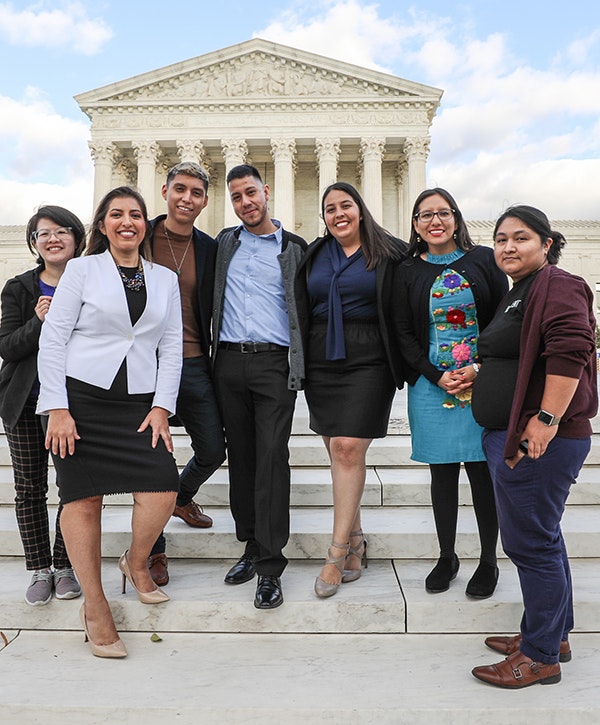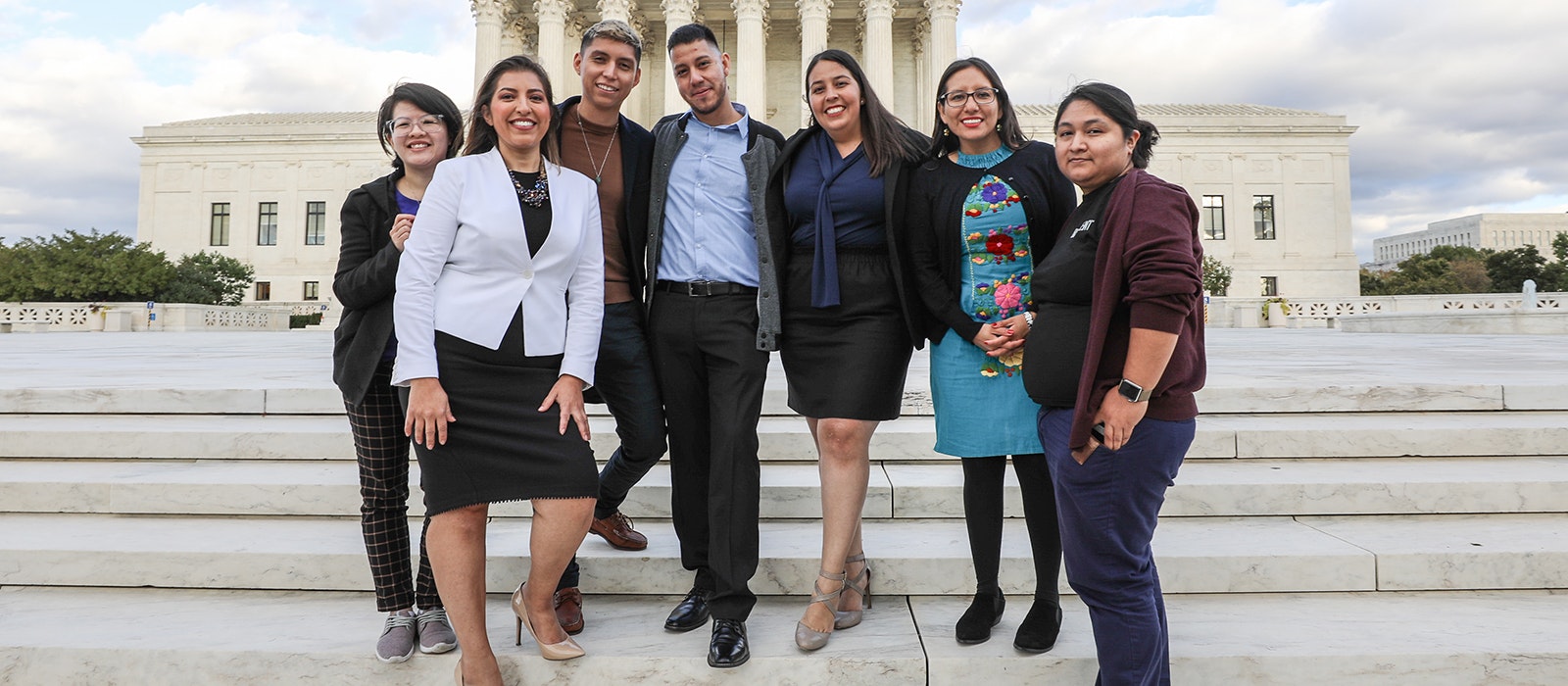Once again, 700,000 Dreamers could face the threat of imminent deportation.
The Supreme Court decided to review three cases on the Trump Administration’s termination of Deferred Action for Childhood Arrivals (DACA). The court will likely hear oral arguments in the Fall, and decide on the fate of the DACA program between January and June of 2020. Once again, about 700,000 Dreamers could be vulnerable to the threat of imminent deportation.
Since President Trump’s announcement to rescind DACA, federal court after federal court has found the President’s actions to be unlawful. However, the Trump Administration has convinced the Supreme Court to hear their request to try and overrule the lower courts.
Here are the facts: DACA is legal. And DACA has been an overwhelming success for the approximately 700,000 people who are in it.
Protecting Dreamers is something that 83% of the American public — including 79% of Republicans — agree on. We must take action.
Dreamers are American and deserve a chance to help move America forward! The House of Representatives did its part and passed the American Dream and Promise Act. Now it’s up to the Senate to make it the law of the land.
Stand up for Dreamers today by signing onto our statement of support for DACA and Dreamers today.

